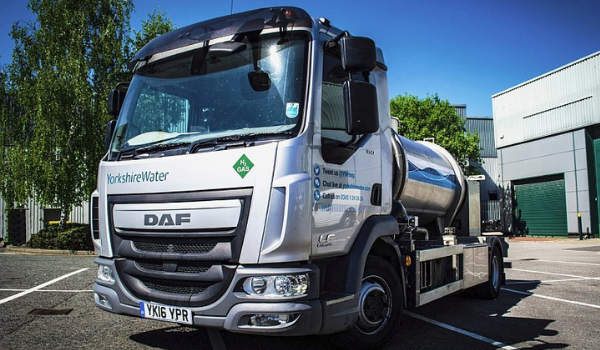Developing a range of zero emission solutions to help meet the need to deliver net zero transport by 2050
In commercial vehicles and heavy-duty applications, full electric battery powertrains are not practical due to their impact on payload, loss of productivity due to recharging time and the challenge finding enough space on board for the volume of battery packs needed to give a useful range.
Hydrogen offers a route to zero-emissions from the tailpipe and if made from renewable generation like solar or wind generation, it offers an exceptionally low carbon fuel solution. ULEMCo is therefore developing solutions for zero-emission hydrogen combustion and fuel cell technology integration.

Zero Emission Hydrogen Combustion
We’re applying our extensive understanding of the combustion of hydrogen to develop vehicles and engines that are efficient and will run on hydrogen without creating NOx and other air quality emissions.

Efficient hydrogen engine vehicles
Our research work is focussed on developing the engine to work efficiently with hydrogen particularly around managing and controlling lean burn. We are also working at a vehicle level to maximise efficiency and optimise at a system level to deliver fuel use that is as good if not better than today’s best in class vehicles.
Managing air quality emissions
Hydrogen doesn’t contain carbon so there are no particulate emissions that we need to worry about, however we do have to make sure that we get the right air mix so that it burns without NOx. Our work focusses on designing right sized engines that delivers the performance requirement of the specific application, without generating NOx.
Applying well known, proven technology
By using combustion technology which is widely understood, we can transition far quicker than any of the other zero-emission options known today.
Cost effective, sustainable solutions
By using existing truck architecture and combustion engine technology, the move to decarbonisation can happen faster and at lower cost, than through other technology solutions.
Zero emission range extension
Our research work is focussed on developing the engine to work efficiently with hydrogen particularly around managing and controlling lean burn. We are also working at a vehicle level to maximise efficiency and optimise at a system level to deliver fuel use that is as good if not better than today’s best in class vehicles.
Double the range of the base vehicle
The FC Rx™ power module for the Nissan eNV200 is specifically designed to provide a practical daily range for electric delivery vehicles, particularly considering load carrying requirements. The single tank option will almost double the range of the base vehicle. For other vehicles we will adapt the technology to meet customer requirements.
Refuel in less than 5 minutes
As the fuel cell generates electricity to power the vehicle and recharge the battery, range is only limited by the proximity to a hydrogen refuelling station. The hydrogen fuel tank can be filled in significantly less than 5 mins, giving fast and convenient access to increased range.
No impact on internal load space
The range extending power module is roof mounted so that the volume of the internal load capacity remains the same.
FC Rx™ Fuel Cell Range Extension
Range extension provides flexibility and allows for increased electric vehicle utilisation and duty cycle options. Battery electric vehicles provide the opportunity for zero emission driving. However, finding routes and duties to use them based on rechargeable battery power alone, is limited due to range, and charging time.

In addition, the vehicle’s quoted range does not take into account the practicalities of normal use, including seasonal variation, load carrying, use of power take off equipment and driving on gradients.
ULEMCo’s Fuel Cell Range Extension (FC Rx™) power module is specifically designed to provide vehicle operators with a zero emission, practical, route to meet a wider range of daily use cycles, particularly deliveries, engineering servicing and urban driving environments.


